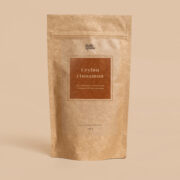Memory is one of the most important cognitive functions that we, as humans, possess. It allows us to store, retain, and recall information, which helps us navigate daily life and understand the world around us. Memory is crucial for our ability to learn, make decisions, and build relationships. Without it, we wouldn’t be able to remember past experiences, retain important information, or plan for the future—not to mention the beautiful memories of childhood and other moments.
So, what kinds of activities or even foods can help preserve memory for longer? This article will provide practical tips focused specifically on lifestyle changes. After all, we understand that memory is essential not only for our personal and professional lives but also for our overall well-being.
Lifestyle changes
- Sufficient Sleep: Sleep plays a vital role in memory consolidation and allows the brain to process and store information from the day. The memory consolidation process mostly takes place during deep sleep. Lack of sleep can impair memory, attention, and cognitive functions. To ensure proper memory consolidation, it is essential to get 7–9 hours of sleep per night.
- Regular Exercise: Exercise provides many benefits for the brain, including increased blood flow, which delivers more oxygen and nutrients to brain cells. Physical activity also promotes the release of chemicals known as neurotrophic factors, which support the growth and survival of brain cells. Some studies suggest that regular exercise can improve memory and cognitive function and reduce the risk of age-related cognitive decline.
- Stress Management: High levels of stress can impair memory and cognitive functions. Stress increases the levels of hormones like cortisol and adrenaline, which can damage brain cells and negatively affect memory and cognition. Finding ways to manage stress—such as practicing meditation, doing yoga, or using other relaxation techniques—can help improve memory and mental performance.
- Social Interaction: Engaging in social activities can help keep the brain active and improve memory. Interacting with others stimulates the brain, which can enhance both memory and cognitive functions. It may also help reduce the risk of age-related cognitive decline.
- Learning New Skills: Keeping the brain engaged by learning new skills can enhance memory. The process of learning new information helps create new connections between brain cells, which can support better memory and cognitive performance.
- Nutritious Diet: A diet rich in fruits, vegetables, and omega-3 fatty acids can support brain health and boost memory. Fruits and vegetables are high in antioxidants that protect the brain from damage, while omega-3 fatty acids can improve brain function and memory.
- Mental Challenges: Engaging in mentally stimulating activities can help keep the brain active and improve memory. Challenging the brain with new information and tasks may enhance both memory and cognitive functions.
- Limit Alcohol and Smoking: Alcohol and smoking can have a negative effect on memory and cognitive health. Alcohol can impair memory and thinking by damaging brain cells and disrupting communication between them. Smoking can also harm brain cells and reduce memory performance. Therefore, it’s important to limit alcohol consumption and avoid smoking to protect memory and cognitive function.
The benefits of food for memory
- Blueberries: Blueberries are rich in antioxidants, especially anthocyanins, which help protect the brain from free radical damage and improve cognitive function. Studies have shown that regular consumption of blueberries can enhance memory, attention, and overall cognitive performance.
- Salmon: Salmon is an excellent source of omega-3 fatty acids, particularly DHA and EPA, which are essential for brain function and development. These fatty acids help maintain the integrity of brain cell membranes, supporting memory, cognitive function, and overall brain health.
- Spinach: Spinach is a great source of antioxidants such as lutein and zeaxanthin, as well as anti-inflammatory compounds that help protect the brain from damage and improve memory. These nutrients may also reduce the risk of age-related cognitive decline.
- Avocados: Avocados are rich in monounsaturated fats, which support brain health and enhance memory. These healthy fats can improve blood flow to the brain, helping to nourish and protect brain cells.
- Dark Chocolate: Dark chocolate is high in flavonoids—antioxidants that may enhance blood flow to the brain and protect it from damage. Research shows that consuming dark chocolate can improve cognitive function, memory, and overall brain health.
- Nuts and Seeds: Nuts and seeds, such as almonds, walnuts, and pumpkin seeds, are excellent sources of vitamin E, which helps protect the brain from damage and supports memory. Vitamin E is an antioxidant that neutralizes free radicals in the brain, helping to preserve cognitive function.
- Eggs: Eggs are a rich source of choline, an essential nutrient for brain development and memory. Choline is crucial for the production of acetylcholine, a neurotransmitter involved in memory and cognitive performance.
- Turmeric: Turmeric contains curcumin, a powerful anti-inflammatory and antioxidant compound that can protect the brain from damage and enhance memory. Curcumin may help reduce age-related cognitive decline and promote overall brain health.
- Green Tea: Green tea is rich in catechins, antioxidants that improve blood flow to the brain and protect it from damage. Regular consumption of green tea has been linked to better cognitive function, memory, and overall brain performance.
- Whole Grains: Whole grains such as oats, quinoa, and brown rice are good sources of B vitamins, which are important for brain health and memory. B vitamins are essential for the production of neurotransmitters—chemicals that transmit signals between brain cells.
- Pomegranates: Pomegranates are rich in antioxidants that help protect the brain from damage and support memory. These antioxidants help neutralize free radicals in the brain, contributing to the preservation of cognitive functions.
- Tomatoes: Tomatoes are a good source of lycopene, an antioxidant that helps protect the brain from damage and supports memory. Lycopene may also help reduce the risk of age-related cognitive decline and promote brain health.
- Blackcurrants: Blackcurrants are high in anthocyanins—flavonoids that can enhance cognitive function and memory. These compounds support increased blood flow to the brain and protect brain cells from damage.
- Kale: Kale is packed with antioxidants and anti-inflammatory compounds that help protect the brain from damage and improve memory. These nutrients may also reduce the risk of age-related cognitive decline and promote overall brain health.
- Beets: Beets are a great source of nitrates, which can improve blood flow to the brain and support cognitive function and memory. Nitrates help dilate blood vessels, increasing oxygen and nutrient delivery to brain cells.
Ashwagandha: A Natural Aid for Memory?
Also known as Withania somnifera (commonly Ashwagandha), this herb has been used for centuries in Ayurvedic medicine to support brain function and memory. It is also well-known for its ability to reduce stress and anxiety while enhancing overall cognitive performance. Some studies suggest that it may improve memory and cognitive function by increasing levels of a neurotransmitter called acetylcholine, which plays a key role in memory and cognition.
In addition, Ashwagandha may improve cerebral blood flow, allowing more oxygen and nutrients to reach brain cells. This increased circulation may help nourish and protect the brain, potentially enhancing memory and cognitive performance. The herb has also been found to reduce stress, anxiety, and fatigue—factors that can significantly impact memory and mental function. Research has shown that Ashwagandha can lower levels of the stress hormone cortisol, which in turn can help decrease anxiety and improve mental clarity.
It’s important to note that consuming certain foods or supplements as part of a balanced diet, along with maintaining a healthy lifestyle, is the most effective way to support memory and cognitive function. As always, it is best to consult with a healthcare professional before making significant dietary changes or starting any new supplements. It’s also essential to consider how supplements might interact with medications or existing health conditions.



















